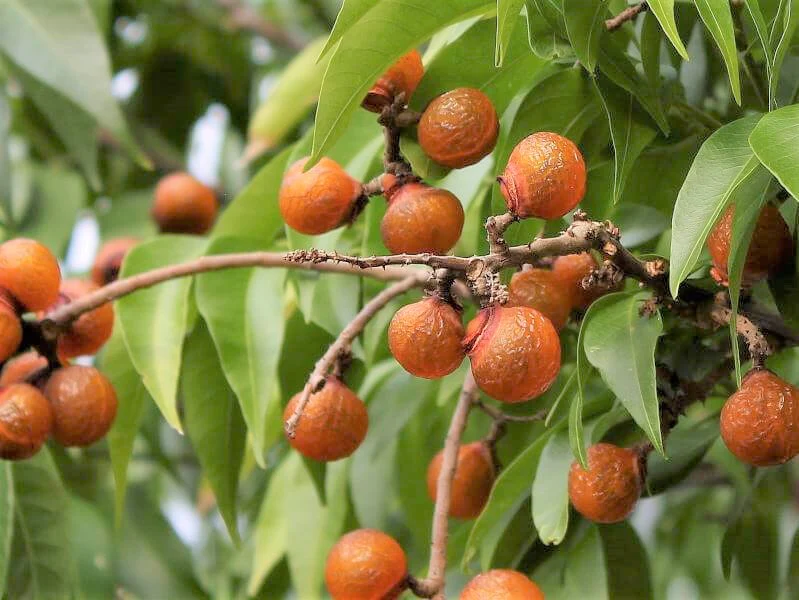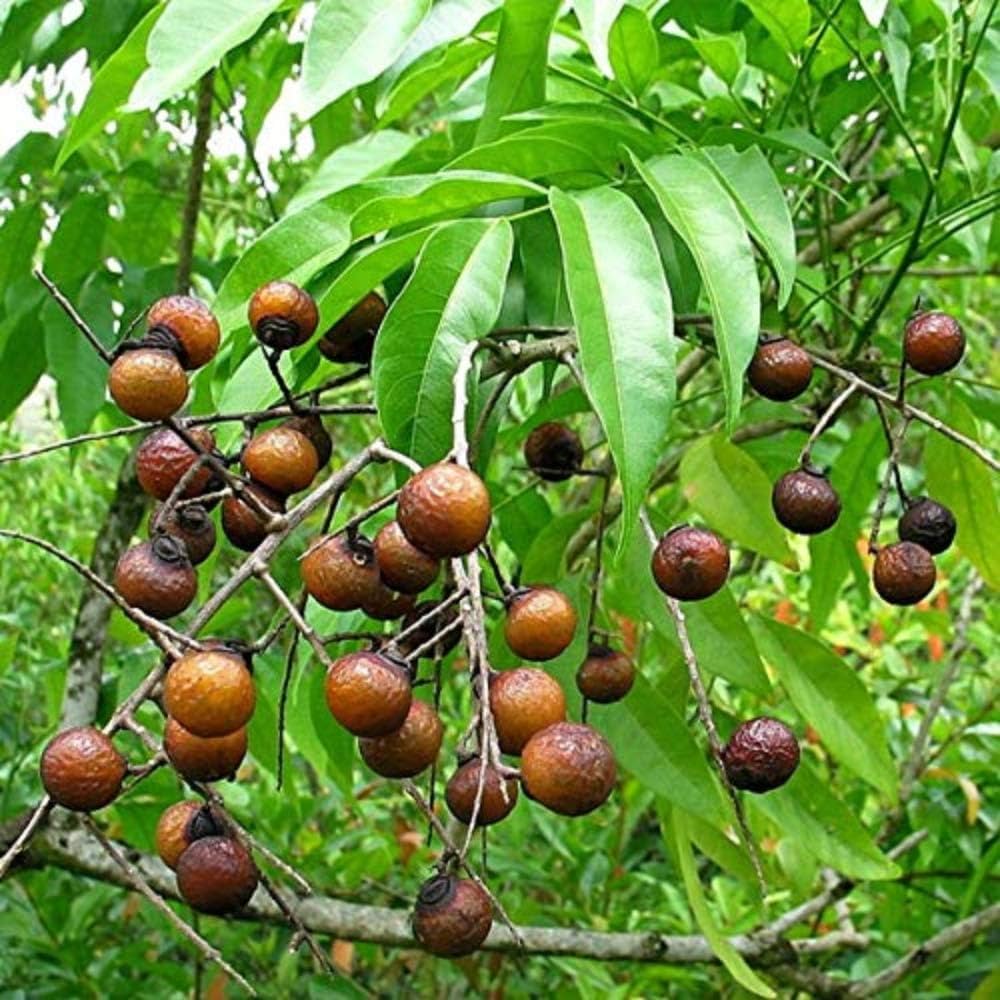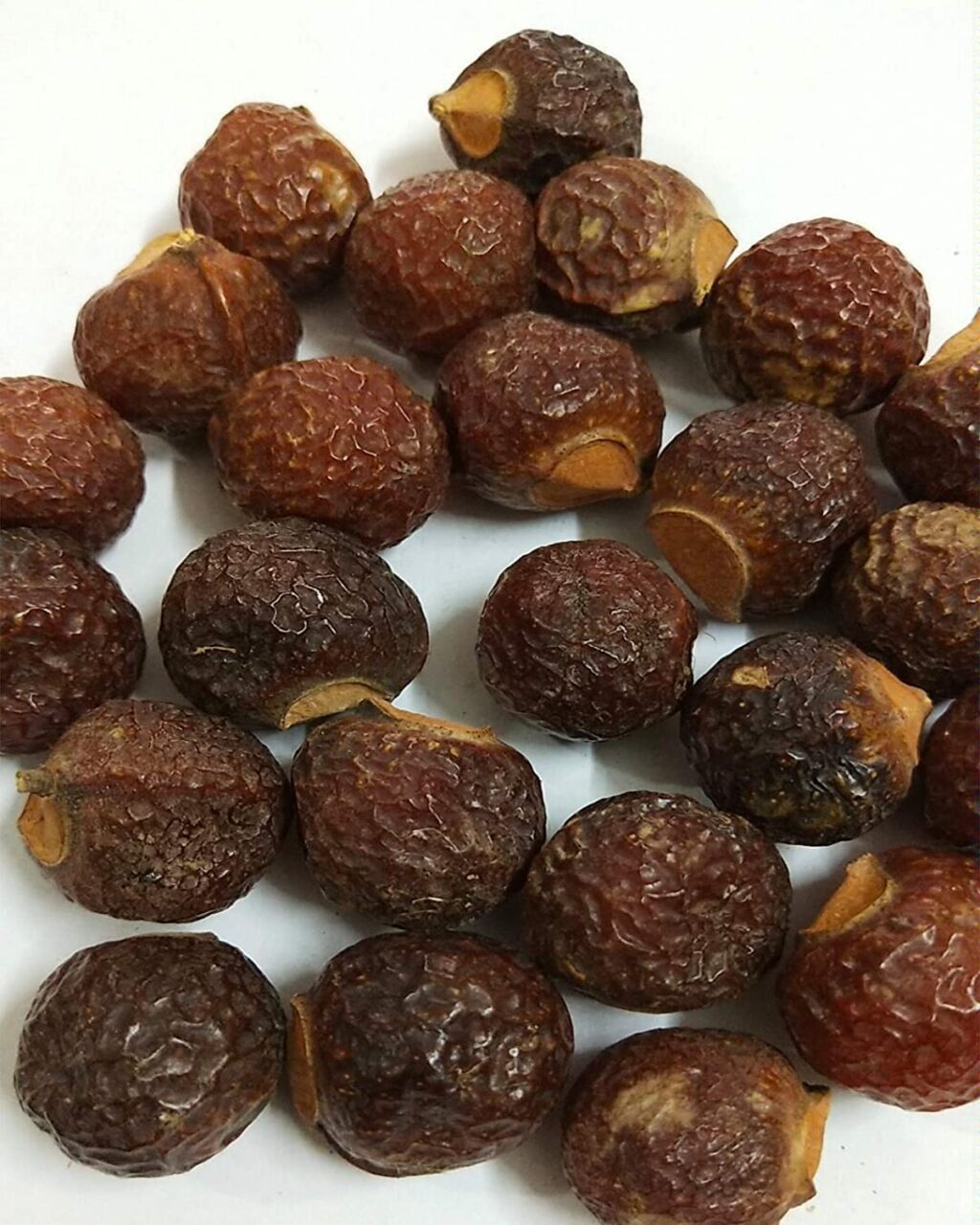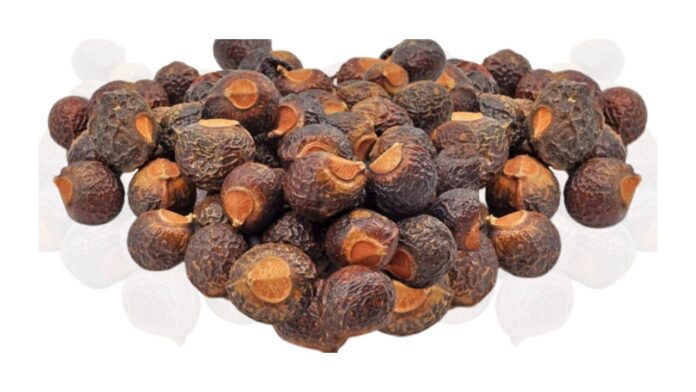INTRODUCTION
Reetha, also known as soap or Sapindus mucorusi, is a fruit tree native to India and many other countries in Asia. Its small, round fruit contains natural saponins, making it an excellent natural cleanser and soap. While Reetha has been widely used as a natural hair and skin care ingredient, it also offers a range of proven medical benefits that have been recognized for centuries. In this article, we will review some of the remarkable health benefits associated with Retha.
Types
There are different types of Reetha (Soapnut), typically classified based on their species and region of origin. The two most common species of reetha are:
Sapindus mukorossi (Indian Soapnut)

- Region: Native to India and Nepal, commonly found in the Himalayan foothills.
- Characteristics:
- Large, golden-brown fruits.
- Considered the most popular and widely used variety due to its high saponin content, which makes it highly effective for cleansing purposes.
- Often used in Ayurvedic practices for hair care, skin care, and cleaning.
Sapindus trifoliatus (South Indian Soapnut)

- Region: Grows in tropical regions of South India.
- Characteristics:
- Smaller, darker fruits compared to Sapindus mukorossi.
- Contains less saponin than Sapindus mukorossi but is still widely used for washing and cosmetic purposes.
Other Types (Less Common):
- Sapindus Saponaria: Found in the Americas, including the Caribbean and Central and South America. It also has saponin-rich fruits but is less commonly used in commercial applications compared to the Indian varieties.
- Sapindus rarak: Found in Southeast Asia, including countries like Indonesia and the Philippines. This variety is used locally for similar purposes as Sapindus mukorossi.
Uses of Retha
- Hair Care: Boil reetha fruits in water, strain, and use the liquid as a natural shampoo.
- Skin Care: Use reetha-infused water as a face wash or body cleanser.
- Respiratory Health: Reetha powder is sometimes used in herbal preparations for cough and asthma (consult with an Ayurvedic practitioner).
Health Benefits
Reetha (Soapnut) offers a wide range of health benefits due to its natural saponins and other bioactive compounds. It is valued in traditional medicine, especially in Ayurveda, for its cleansing, antimicrobial, and therapeutic properties. Here are some of the key health benefits of reetha.
Anti-inflammatory properties
Reetha has powerful anti-inflammatory properties, which can help in the management of various inflammatory conditions. Fruit extracts contain compounds that inhibit the activity of pro-inflammatory enzymes, helping to reduce inflammation and associated symptoms. This makes Reetha an attractive natural remedy for arthritis, gout, and certain skin conditions such as eczema and psoriasis.

Antimicrobial and Antifungal Effects
The saponins present in Retha have shown significant antimicrobial and antifungal properties. Studies have shown that Retha extract exhibits activity against a variety of bacteria, including those responsible for skin infections and respiratory tract infections. Additionally, it has antifungal properties that can combat fungal skin infections, such as athlete’s foot and candidiasis. Reetha’s antimicrobial and antifungal effects make it a valuable ingredient in natural cleansers and soaps.
Natural Hair Cleanser
Retha serves as an excellent natural alternative to chemical shampoos. Its natural saponins effectively cleanse the scalp and hair without stripping away essential natural
Promotes Hair Growth
Rich in nutrients, Retha strengthens hair roots and stimulates hair growth. Regular use can help reduce hair fall and enhance hair volume, making it an ideal choice for those looking to improve hair density and health.
Treats Dandruff
The antifungal and antibacterial properties of Retha make it an effective remedy for dandruff and other scalp infections. It helps in keeping the scalp clean and free from flakes, ensuring a healthy and irritation-free scalp.

Improves Respiratory Health
Cough and Asthma Relief: In traditional medicine, reetha is used as an expectorant to clear mucus from the respiratory tract. It is believed to help in treating conditions like cough, asthma, and bronchitis by reducing congestion.
Helps in Digestion
Reetha has mild laxative properties that can help relieve constipation and improve bowel movements when consumed in small quantities under medical supervision.
It is sometimes used to cleanse the digestive system and remove toxins, promoting overall digestive health.
Joint Pain Relief
Reetha’s anti-inflammatory effects may help alleviate pain and inflammation associated with arthritis and other joint-related issues.
Eye Care
In traditional practices, reetha water has been used to treat eye infections like conjunctivitis. Its antibacterial properties help reduce swelling and discomfort.
Insect Repellent
Reetha’s natural insect-repelling properties make it useful for treating lice infestations in hair or as a natural remedy for fleas in pets.
Side Effects
While Reetha (Soapnut) is generally considered safe for external use, especially as a natural cleanser, there are some potential side effects and precautions to be aware of, particularly with improper use or overuse. Here are some possible side effects:

- Skin Irritation
- Allergic Reactions
- Dryness
- Eye Irritation
- Gastrointestinal Issues (if ingested improperly)
- Respiratory Irritation (if inhaled in powder form)
- Toxicity (if consumed in large amounts internally)
- Nausea or Vomiting (if ingested without proper preparation)




